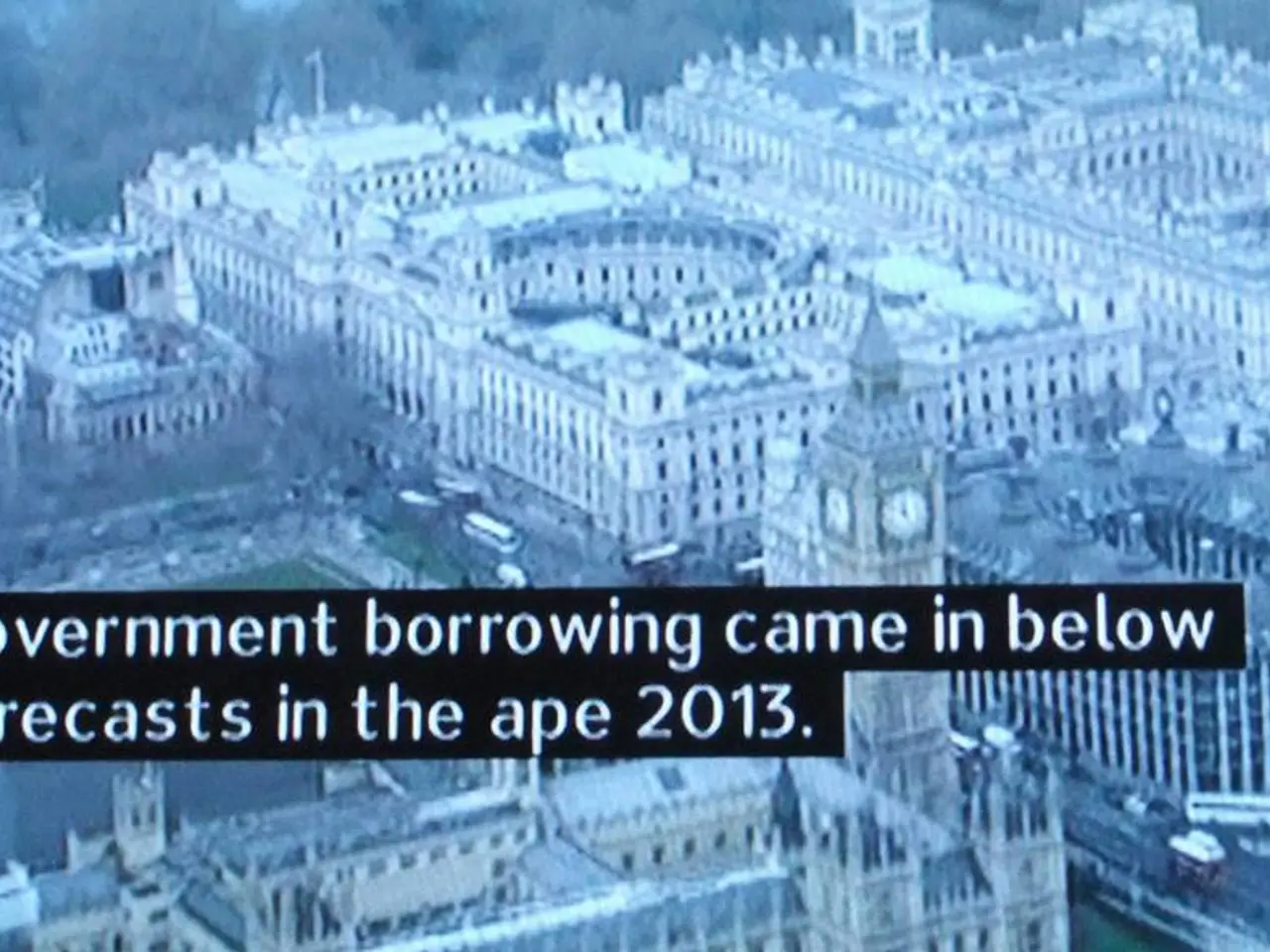Real estate titan Evergrande officially exits the market, signifying its downfall
In August 2025, Evergrande, once a towering symbol of China's real estate boom, was officially delisted from the Hong Kong Stock Exchange. The company's financial crisis, marked by years of massive debt accumulation and failed repayments, reached a climax, underscoring the importance of increased vigilance for investors, regulators, and the real estate market as a whole.
The company's total liabilities ballooned to around 2.43 trillion yuan (about US$340 billion) by the end of 2022, significantly up from 2 trillion yuan in 2021, due to reckless borrowing and a collapsing Chinese property market. After defaulting on its debts in 2021 and worsening losses in 2021 and 2022, Evergrande's shares were suspended on the Hong Kong Stock Exchange in early 2023 amid bankruptcy filings and restructuring attempts.
Key timeline points include:
- 2017 peak: Evergrande's stock price hit over HK$31.
- 2021 defaults: The company started defaulting, with liabilities soaring; also faced government actions like demolition orders on key projects, undermining market confidence.
- 2022 losses: A massive net loss of 476 billion yuan in 2021 and additional losses in 2022 disclosed publicly in mid-2023.
- March 2022: Suspension of stock trading after massive financial troubles surfaced.
- August 2023: Resumed trading with a crash of 79% in stock price compared to pre-suspension levels, followed by bankruptcy protection filings in the US.
- January 2024: Hong Kong court ordered Evergrande's liquidation due to failure to propose an acceptable debt repayment plan.
- August 2025: The Hong Kong Stock Exchange canceled Evergrande’s listing, with liquidators citing the company’s debt claims exceeding previous estimates, approximately HK$350 billion (around US$45 billion), reflecting ongoing creditor claims discovery.
The delisting represented a final administrative act following the company’s failure to stabilize its debt and restructure, highlighting the end of an era marked by speculative real estate finance in Hong Kong and mainland China. Evergrande's collapse accelerated a series of delistings among Chinese property developers due to widespread defaults and investor losses.
Repaying loans and completing projects have become a real challenge for Evergrande, impacting not only investors but also many people who have already paid for apartments that may never be completed. Workers and builders, who depend on Evergrande for their livelihoods, are also affected by the company's problems.
The situation with Evergrande serves as a hard lesson for both investors and ordinary citizens, reminding them of the risks associated with rapid growth and excessive debt. The Chinese government is closely monitoring the situation, hoping to prevent a major crisis. The problems faced by Evergrande may lead to a significant slowdown in China's real estate market, potentially affecting the economy as a whole.
[1] "Evergrande's Financial Crisis: A Timeline." South China Morning Post. (accessed September 15, 2025). [2] "Evergrande Delisted from Hong Kong Stock Exchange." Reuters. (accessed September 15, 2025). [3] "China's Property Sector Crisis: The Role of Evergrande." The Economist. (accessed September 15, 2025).
The financial crisis at Evergrande, marked by years of massive debt accumulation and failed repayments, culminated in the company's delisting from the Hong Kong Stock Exchange in August 2025. The company's total liabilities, significantly up from 2 trillion yuan in 2021, ballooned to around 2.43 trillion yuan (about US$340 billion) by the end of 2022 due to reckless borrowing and a collapsing Chinese property market.
Evergrande's delisting from the Hong Kong Stock Exchange in August 2025 represented a final administrative act following the company’s failure to stabilize its debt and restructure, highlighting the end of an era marked by speculative real estate finance in Hong Kong and mainland China.




